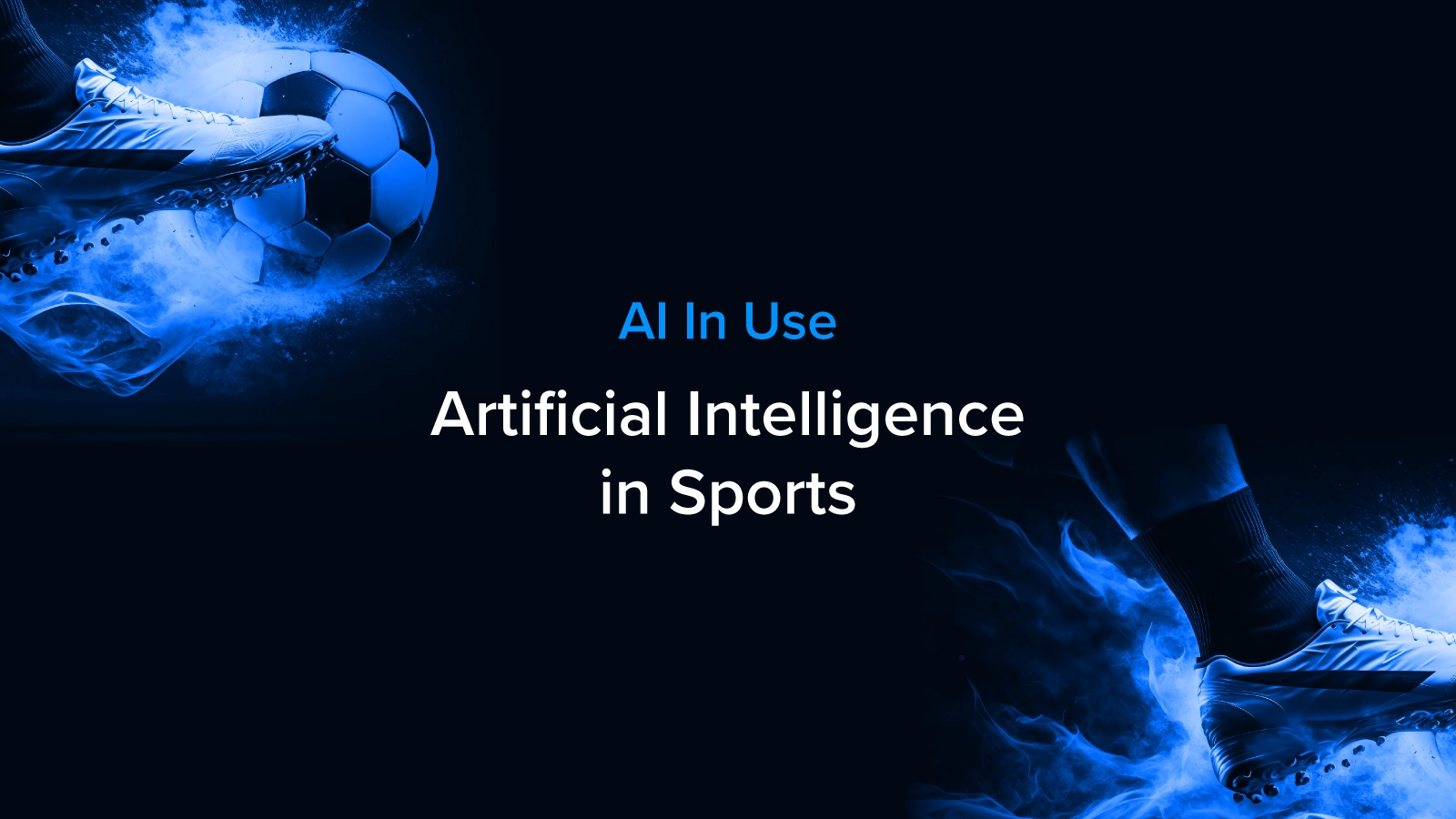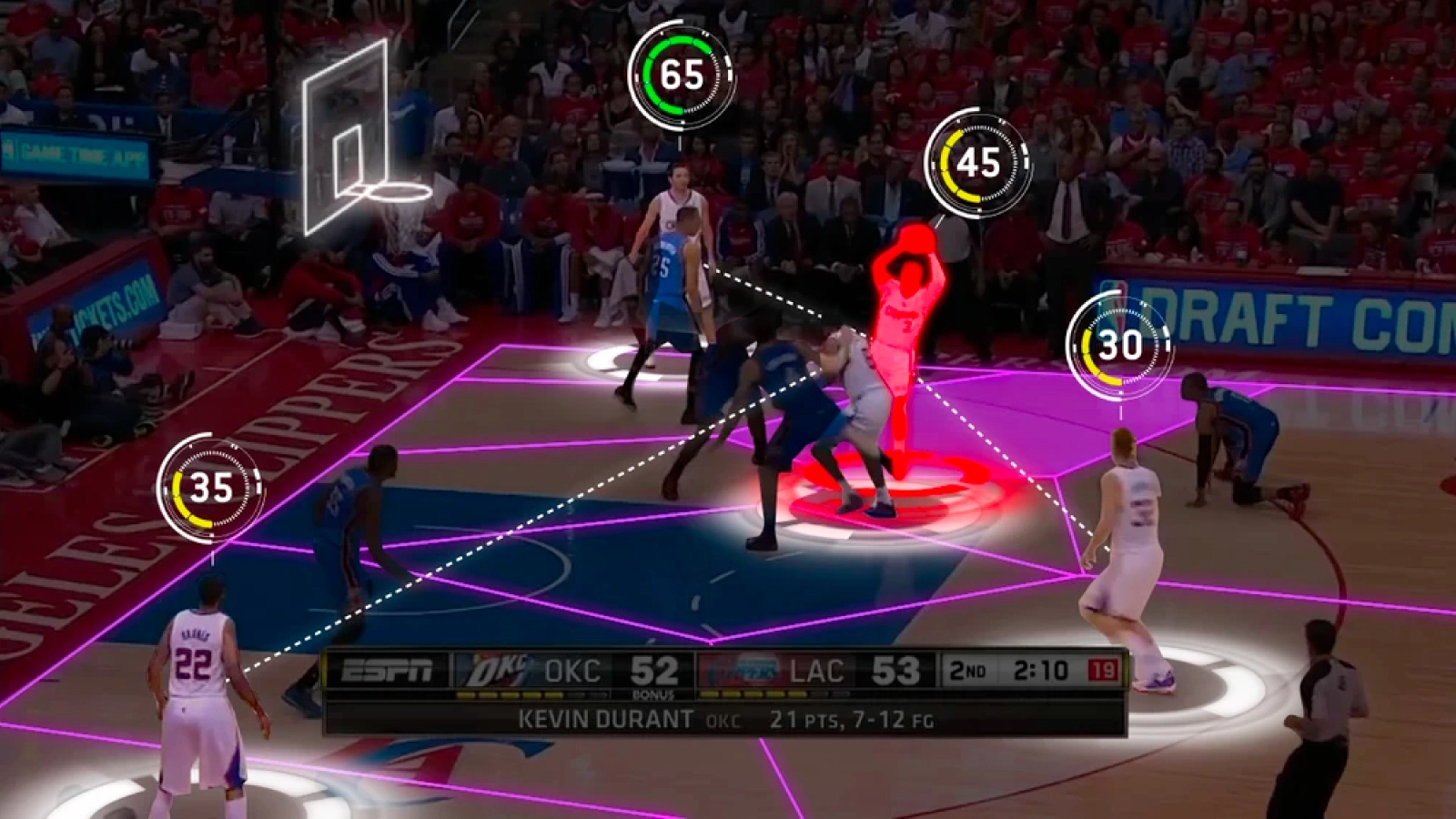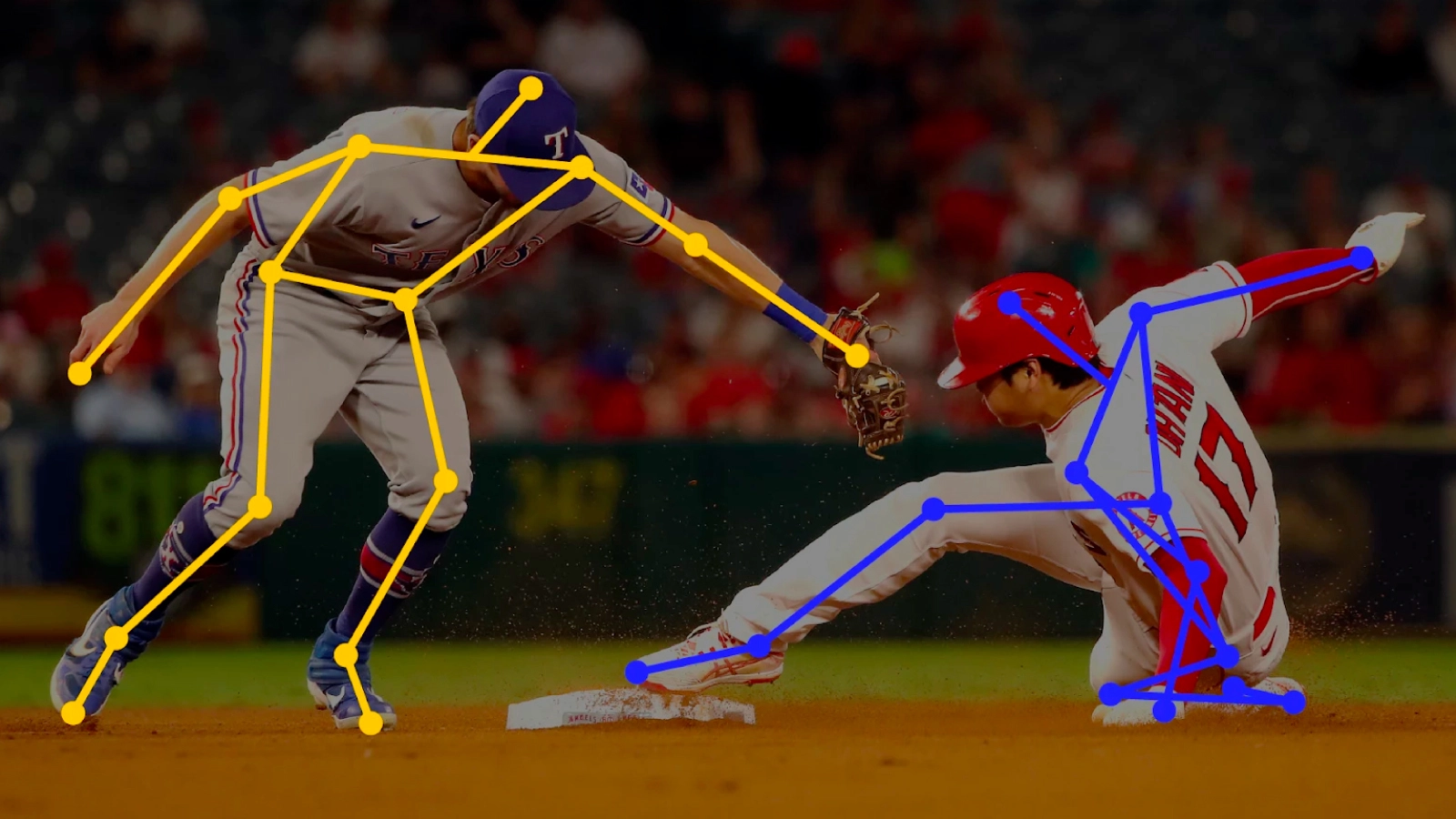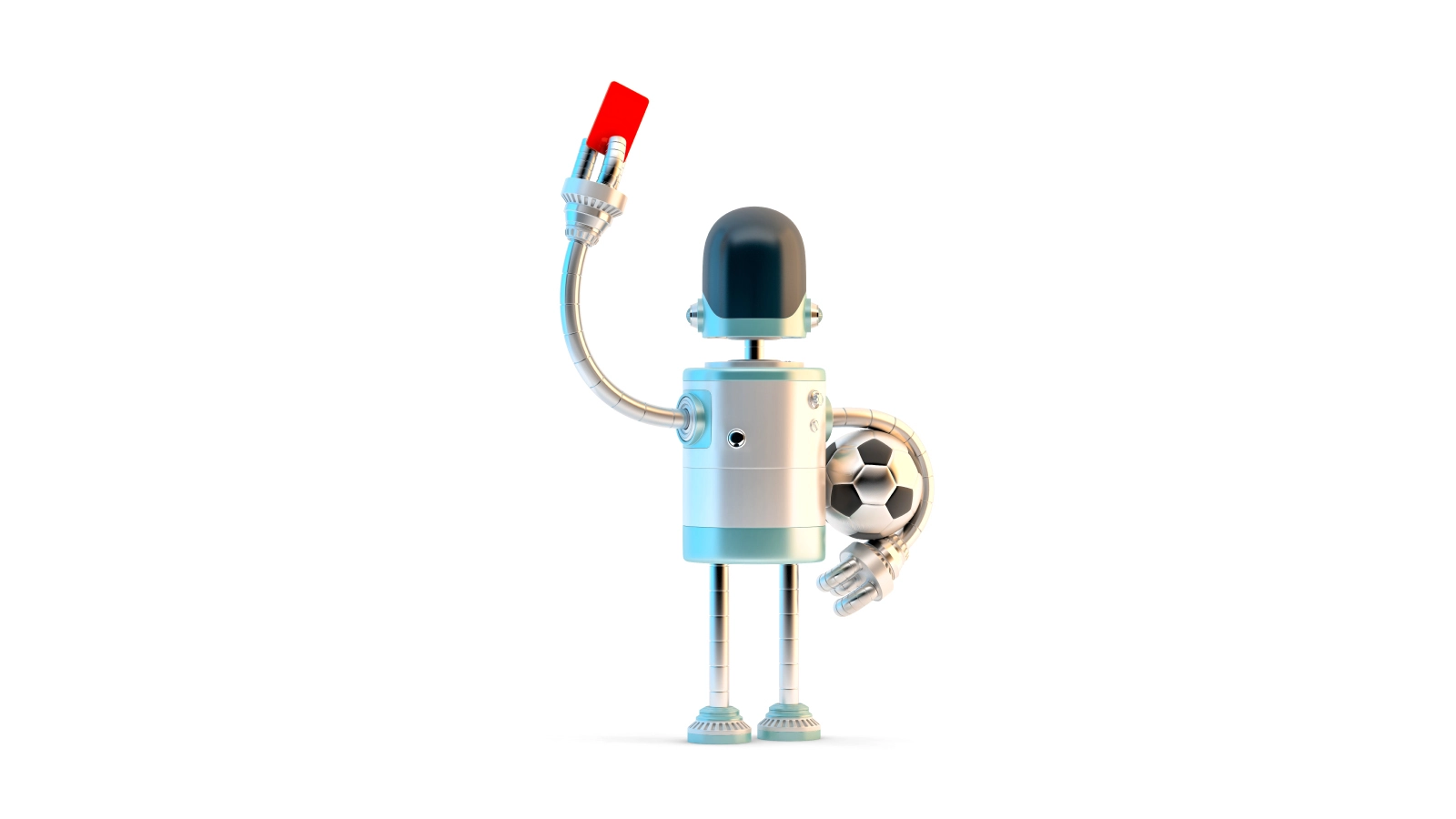
Artificial intelligence (AI) has made a profound impact in industries around the world and the sports industry is no exception, with a wide range of AI applications aimed at improving athletic performance and enhancing the fan experience.
From analyzing game footage to optimizing training regimens, AI is being used in a variety of ways to make sports more competitive and efficient. With the increasing use of AI and high-performance computing in sports, the potential benefits of AI in sports are vast and will be interesting to see how the technology has changed the landscape.
Overview of AI and its Potential
Industries around the world where research and study are based on data have seen the value in adopting machine learning and AI to assist with data analytics and data science. AI can be used to analyze large amounts of data to identify patterns and trends in a given dataset. AI can then be trained and deployed to make accurate predictions on new data.
These capabilities can be applied to sports with the analysis of stats and video to make strategic decisions and to better understand how the game is played and also to improve fan consumption.
AI makes it easier and faster to ingest large amounts of video data from every single game, sometimes multiple games a day, to make digital content seamless to provide fans the content they want to watch, and video coaches and players use to improve their game.
Performance and Video Analytics with Computer Vision

In sports, one application of AI is predictive modeling, which involves creating models that can forecast future events. Predictive modeling has been widely utilized in marketing and finance, but it can also be used to predict player performance.
AI-powered computer vision and machine learning algorithms can automatically track specific players, ball movement, actions per possession, and other factors, and generate metrics and statistics extremely quickly. Gathering the data is extremely valuable but AI can also analyze the data for insight. This data can then be used to identify patterns and trends in the game.
By analyzing player statistics, injuries, and records, machine learning algorithms can be used to create predictive models that coaches and managers can use to make informed decisions. For example, predictive models can identify opposing teams’ play styles, allowing teams to adjust their game strategies accordingly. Predictive modeling can also be used to identify players who are likely to have breakout seasons, enabling teams to make educated decisions on trades or signings.
Looking to train your own AI model to assist with your research or deploy the next big tech? You're going to need an Exxact Workstation for Deep Learning & AI training to accelerate your research!
AI is Revolutionizing Player Performance

AI-powered cameras and sensors are being used to track the movements and actions of individual players during games and practices. The data collected is analyzed by AI algorithms to identify patterns and trends in player performance, such as areas of strength and weakness, allowing coaches and trainers to create personalized training plans for individual players.
Another way AI is being utilized to enhance player performance is through the use of Virtual and Augmented Reality training. AI-powered VR simulations mimic real-world game scenarios and provide players with realistic and highly customized training experiences. This allows players to practice and improve their skills in a controlled environment without the risk of injury.
Training and Performance with AI-assisted Sports Apps

AI-assisted sports apps are becoming increasingly popular among athletes and coaches. These apps use AI and machine learning algorithms to analyze data and provide personalized recommendations for training, nutrition, and recovery. These apps can also use AI-powered sensors and cameras to track the user's movements, form, and posture, providing real-time feedback on technique, and helping to prevent injuries and improve performance.
For example, an AI-assisted running app can track the user's running performance, analyze data such as distance, pace, and calories burned, and provide personalized training plans, nutrition recommendations, and recovery tips. Another example is the use of computer vision to track movement through an exercise and act as a virtual fitness coach. The AI is able to generate a wireframe on top of the athlete to correct their form, count reps, and provide personalized feedback.
Can AI Replace Sports Referees?

AI technology has the potential to assist referees in making certain decisions in games. Still, it is unlikely that it will completely replace human referees in the near future.
For example, AI can be used to assist referees in making accurate line calls using goal-line technology, and calling fouls. Computer vision and machine learning algorithms can be used to analyze footage of a play and make an accurate judgment based on the video data. This technology is already being used in some sports, such as soccer and hockey.
AI technology is also being used as an aid in judging contests, such as water diving. By analyzing the diver's form, technique, and execution, the dive coaches can find where improvements can be made. However, in most cases, AI is also used as a tool to assist human judges, not replace them.
However, AI technology is not yet advanced enough to make many of the judgment calls that human referees are required to make, such as determining intent or assessing the severity of a foul. Additionally, AI technology cannot account for the nuances and context of a game like a human referee can. For example, fake-outs and hesitation moves, something that can be difficult to determine legality using technology only.
AI for Sports Media Consumption
Sports are one of the most consumed media, with fans watching from around the world. Using AI algorithms can make the viewing experience more enjoyable. Live television for sports coverage utilizes AI to parse through thousands of hours of multi-angle footage and compile them into a short highlight reel in real-time to keep fans updated via social media, or airing it between transitions and breaks in the game.
For example, WSC Sports Technologies utilizes their AVGEN (Automatic Video Generator) AI to parse through any sports game and generate customized highlights in near real-time. The Cleveland Cavaliers were the first to implement player highlights using WSC technology, enabling higher engagement and app downloads as well as over 16,000 videos posted in a single NBA Season.
Media and short video form consumption have made highlights a very important part of the sports culture and Artificial Intelligence is making it extremely easy for media technicians to automatically piece together highlight reels with ease.
Final Thoughts on Using Artificial Intelligence in Sports
In conclusion, AI and high-performance computing is revolutionizing the world of sports in a number of ways. AI and data science and analytics are valuable tools for coaches and teams used to ingest large amounts of data. Assisted AI sports apps are also making it easier for people to train and improve their own performance by providing personalized training programs for athletes.
As AI models are trained on data, it's important to ensure that the data used to train them is unbiased and that the models are not perpetuating biases. We must also consider the potential implications of using AI in sports and its effect on the overall integrity of the game.
New tech companies around the world will continue to develop more and more advanced computer systems to improve the Sports Industry in various ways. Artificial Intelligence is becoming an essential part of sports and will continue to have a significant impact. And the world will begin to change with it.
Interested in learning more about how AI is revolutionizing the world we live in? Be sure to check out more of our blog series AI In Use, such as Artificial Intelligence in Finance.
Interested in training and developing your very own AI model?
Have any questions about scaling your computing infrastructure?
Contact Us Today!

Artificial Intelligence in Sports
Artificial intelligence (AI) has made a profound impact in industries around the world and the sports industry is no exception, with a wide range of AI applications aimed at improving athletic performance and enhancing the fan experience.
From analyzing game footage to optimizing training regimens, AI is being used in a variety of ways to make sports more competitive and efficient. With the increasing use of AI and high-performance computing in sports, the potential benefits of AI in sports are vast and will be interesting to see how the technology has changed the landscape.
Overview of AI and its Potential
Industries around the world where research and study are based on data have seen the value in adopting machine learning and AI to assist with data analytics and data science. AI can be used to analyze large amounts of data to identify patterns and trends in a given dataset. AI can then be trained and deployed to make accurate predictions on new data.
These capabilities can be applied to sports with the analysis of stats and video to make strategic decisions and to better understand how the game is played and also to improve fan consumption.
AI makes it easier and faster to ingest large amounts of video data from every single game, sometimes multiple games a day, to make digital content seamless to provide fans the content they want to watch, and video coaches and players use to improve their game.
Performance and Video Analytics with Computer Vision

In sports, one application of AI is predictive modeling, which involves creating models that can forecast future events. Predictive modeling has been widely utilized in marketing and finance, but it can also be used to predict player performance.
AI-powered computer vision and machine learning algorithms can automatically track specific players, ball movement, actions per possession, and other factors, and generate metrics and statistics extremely quickly. Gathering the data is extremely valuable but AI can also analyze the data for insight. This data can then be used to identify patterns and trends in the game.
By analyzing player statistics, injuries, and records, machine learning algorithms can be used to create predictive models that coaches and managers can use to make informed decisions. For example, predictive models can identify opposing teams’ play styles, allowing teams to adjust their game strategies accordingly. Predictive modeling can also be used to identify players who are likely to have breakout seasons, enabling teams to make educated decisions on trades or signings.
Looking to train your own AI model to assist with your research or deploy the next big tech? You're going to need an Exxact Workstation for Deep Learning & AI training to accelerate your research!
AI is Revolutionizing Player Performance

AI-powered cameras and sensors are being used to track the movements and actions of individual players during games and practices. The data collected is analyzed by AI algorithms to identify patterns and trends in player performance, such as areas of strength and weakness, allowing coaches and trainers to create personalized training plans for individual players.
Another way AI is being utilized to enhance player performance is through the use of Virtual and Augmented Reality training. AI-powered VR simulations mimic real-world game scenarios and provide players with realistic and highly customized training experiences. This allows players to practice and improve their skills in a controlled environment without the risk of injury.
Training and Performance with AI-assisted Sports Apps

AI-assisted sports apps are becoming increasingly popular among athletes and coaches. These apps use AI and machine learning algorithms to analyze data and provide personalized recommendations for training, nutrition, and recovery. These apps can also use AI-powered sensors and cameras to track the user's movements, form, and posture, providing real-time feedback on technique, and helping to prevent injuries and improve performance.
For example, an AI-assisted running app can track the user's running performance, analyze data such as distance, pace, and calories burned, and provide personalized training plans, nutrition recommendations, and recovery tips. Another example is the use of computer vision to track movement through an exercise and act as a virtual fitness coach. The AI is able to generate a wireframe on top of the athlete to correct their form, count reps, and provide personalized feedback.
Can AI Replace Sports Referees?

AI technology has the potential to assist referees in making certain decisions in games. Still, it is unlikely that it will completely replace human referees in the near future.
For example, AI can be used to assist referees in making accurate line calls using goal-line technology, and calling fouls. Computer vision and machine learning algorithms can be used to analyze footage of a play and make an accurate judgment based on the video data. This technology is already being used in some sports, such as soccer and hockey.
AI technology is also being used as an aid in judging contests, such as water diving. By analyzing the diver's form, technique, and execution, the dive coaches can find where improvements can be made. However, in most cases, AI is also used as a tool to assist human judges, not replace them.
However, AI technology is not yet advanced enough to make many of the judgment calls that human referees are required to make, such as determining intent or assessing the severity of a foul. Additionally, AI technology cannot account for the nuances and context of a game like a human referee can. For example, fake-outs and hesitation moves, something that can be difficult to determine legality using technology only.
AI for Sports Media Consumption
Sports are one of the most consumed media, with fans watching from around the world. Using AI algorithms can make the viewing experience more enjoyable. Live television for sports coverage utilizes AI to parse through thousands of hours of multi-angle footage and compile them into a short highlight reel in real-time to keep fans updated via social media, or airing it between transitions and breaks in the game.
For example, WSC Sports Technologies utilizes their AVGEN (Automatic Video Generator) AI to parse through any sports game and generate customized highlights in near real-time. The Cleveland Cavaliers were the first to implement player highlights using WSC technology, enabling higher engagement and app downloads as well as over 16,000 videos posted in a single NBA Season.
Media and short video form consumption have made highlights a very important part of the sports culture and Artificial Intelligence is making it extremely easy for media technicians to automatically piece together highlight reels with ease.
Final Thoughts on Using Artificial Intelligence in Sports
In conclusion, AI and high-performance computing is revolutionizing the world of sports in a number of ways. AI and data science and analytics are valuable tools for coaches and teams used to ingest large amounts of data. Assisted AI sports apps are also making it easier for people to train and improve their own performance by providing personalized training programs for athletes.
As AI models are trained on data, it's important to ensure that the data used to train them is unbiased and that the models are not perpetuating biases. We must also consider the potential implications of using AI in sports and its effect on the overall integrity of the game.
New tech companies around the world will continue to develop more and more advanced computer systems to improve the Sports Industry in various ways. Artificial Intelligence is becoming an essential part of sports and will continue to have a significant impact. And the world will begin to change with it.
Interested in learning more about how AI is revolutionizing the world we live in? Be sure to check out more of our blog series AI In Use, such as Artificial Intelligence in Finance.
Interested in training and developing your very own AI model?
Have any questions about scaling your computing infrastructure?
Contact Us Today!

